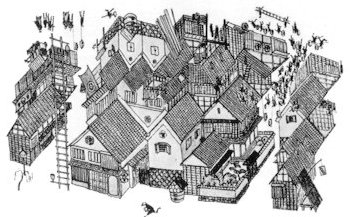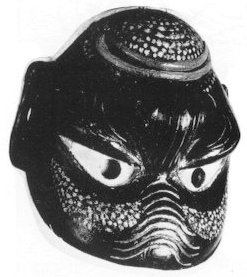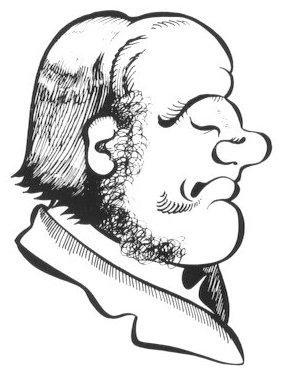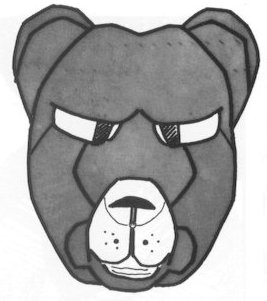|
(1) Double images The reverse action of the Rubin cup is recognized
as a problem in which shapes the shared line (a part of the outline of
the cup) belong to. In other words, it is a key to notice the common part
of shapes to solve the "tricky picture". When the whole is seen in Figure
351, it is an old woman. When a part is seen it is a girl. It is first
to discover the girl's profile which is commonly used in the two faces.
(2) Coexistence of normal and inverse illustrations There are pictures which can exist even if seen from the top or from the bottom. These are a kind of tricky pictures which were painted in ancient western and eastern worlds. The views from each opposing direction can be recognized as an independent painting. Therefore, there is some impossibility, which makes the paintings somewhat strange. The key to draw such a picture is to make important parts vividly play important roles when they are seen from both directions. They are the roofs in Figure 354 for example. They are both the eyes and mouths being utilized for the gazing and sleeping faces. Other parts may be seen vividly and actively when they are seen from one direction. However, some ideas are important in making them have shapes which are not easily recognized from the opposing direction. To see the inverse figures, just click on them.
|



